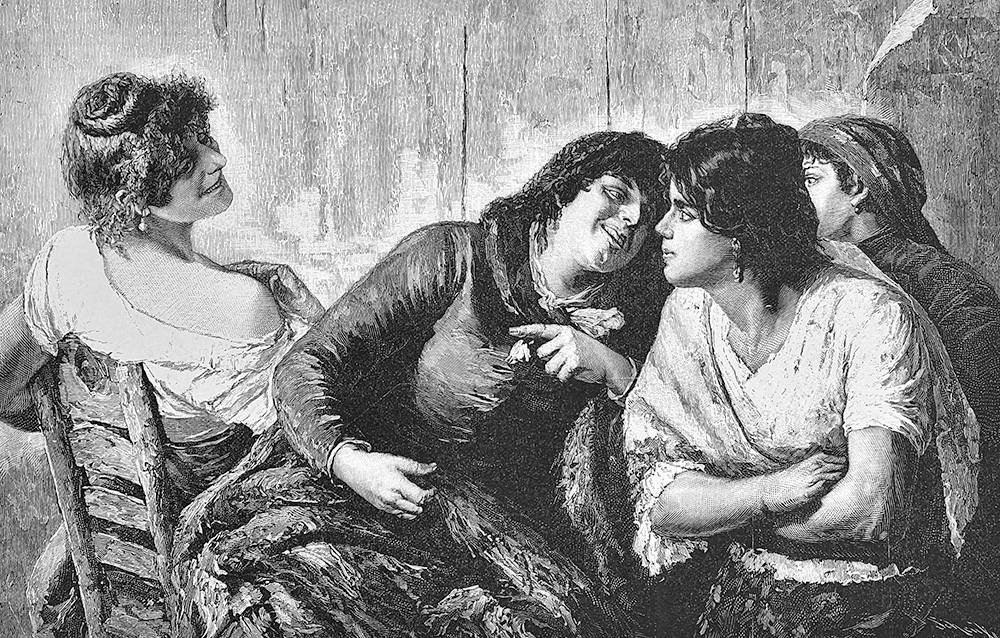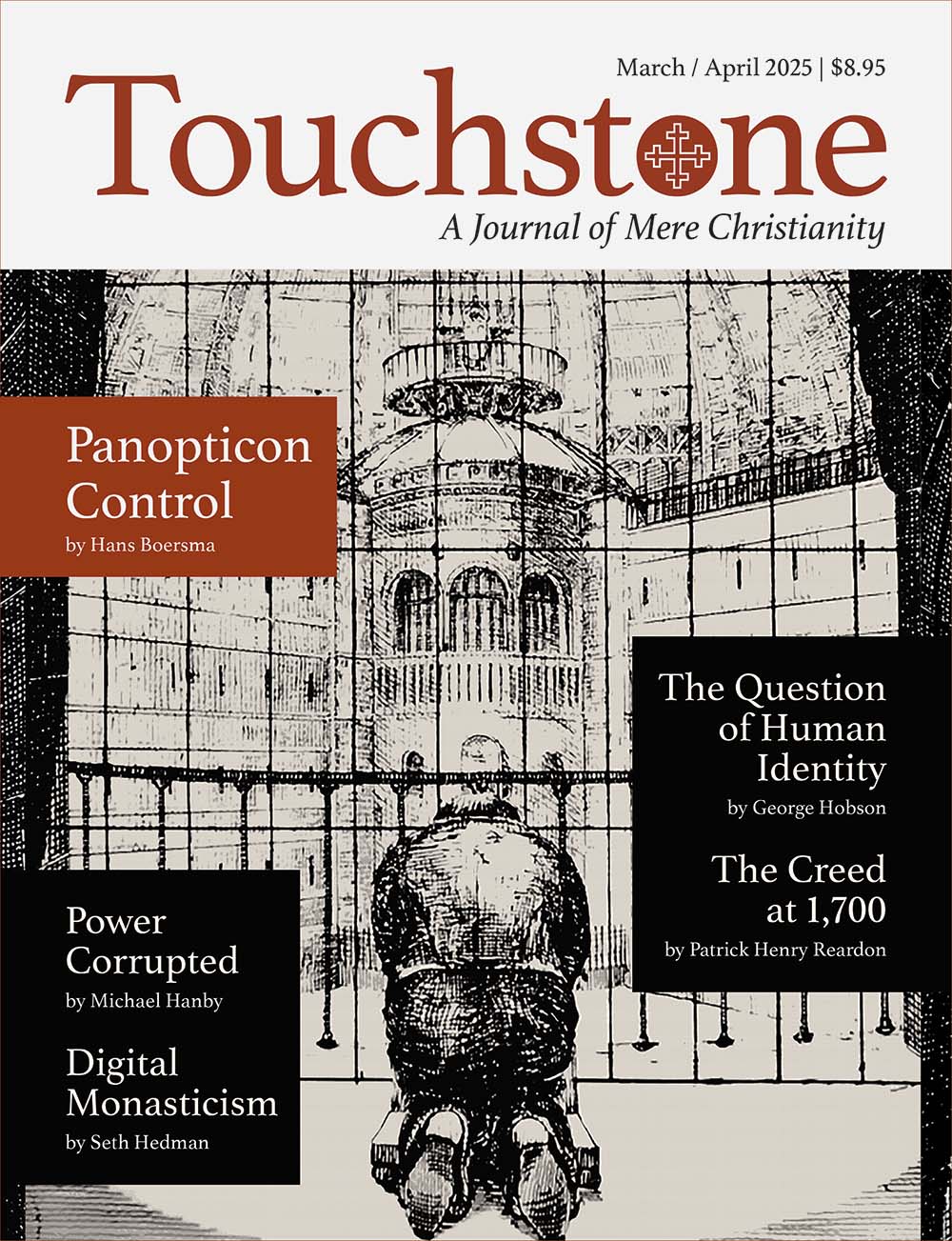Vicious Talk
For reasons of business, I’ve been a presence on what is called “social media,” whose name shows that though the devils know no mirth, they yet have a knack for irony. Along one particularly well-trodden road, I have found that post after post, in a dreary invariability, is devoted to interpreting someone’s words and deeds in the worst conceivable light, and that doesn’t even get to outright calumny, when words are put in someone’s mouth who never said them, or someone is blamed for doing what he never did.
It is a lot easier to tear down than to build up, and that goes for reputations also. It does not require a sharp mind to be flippant, another form of the mirthless humor of hell; and I imagine that the only reason why Uncle Screwtape might not pepper his messages to Wormwood with “LOL” is that the old sinner would have better literary taste than most of our commentators, and that though he has fooled himself to the core, he would not like to appear a fool to others.
In any case, as you make your way down the antisocial page, it is all hatred, spite, hypocrisy, one Pharisee after another saying to all the world and even to God, “I am so thankful that I am not like those others.” Often, among priests and those who consider themselves devout, the hypocrisy takes the form of a most virulent Pharisaism in reverse: “I thank you, Lord, that I am not like that Pharisee over there, who scrupulously tries to obey all of your laws, while I trust in your mercy and break them left and right.” That is what is called believing in a gospel of “love” as specifically opposed to a religion of “rules,” a gospel preached most loudly by those who neither love nor obey.
Political strife, from which there is no longer any escape, is much to blame. Mrs. Schuyler van Rensselaer, writing in 1894 against women’s suffrage, suggested that it was a healthy thing for a society to have half of its rational population not wound up to a fever pitch over politics, to sustain the more important human relations in spite of political heat, and to preserve the small but soothing courtesies of ordinary life. From what I regularly see, it is hard for me to escape the conclusion that the more social sex, in its most politically engaged members, is now the more intransigent in political enmity and the more likely to cry out with horror should anyone call their opinions into question, opinions they tend to hold with the vehemence of Tertullian but without the man’s sharp wit and logic. But that is only a general impression, and in this regard as in others, the force of a mob drags everyone down, male and female, and people are far worse online than they would ever be in person.
That most of the spitefulness is aimed by the left against the right is no comfort for the conservative, because quite enough of it goes the other way, and the general effect is the same. It will do you no spiritual good, and it is unlikely to achieve even a worldly purpose, to be pleased to find that your opponent, who may be to blame for falsehood or cowardice or outright wickedness, has justified your low opinion, and to make that pleasure evident to everyone. It is not a love of truth. It is a love of falsehood in others. One sign of it is the disappointment you feel when you learn that someone is innocent of the sin you had attributed to him.
Manzoni’s Reflection
So I thought I should write an essay on detraction, when by chance I came upon a meditation by Alessandro Manzoni (1785–1873), the author of I Promessi Sposi (The Betrothed), generally considered to be the greatest novel in Italian. Manzoni came to his Catholic faith only in his young adulthood, after he had gotten married; his mother had brought him up in the high-class atheistic salons of post-revolutionary France. In that nation, at that time, speaking evil of others had become the blood of politics, issuing forth in blood on the streets; and yet the young Manzoni, living in the aftermath of the Reign of Terror, an admirer and a critic of Napoleon, somehow acquired a judicious habit of psychological analysis, probing the tangled and often hidden motives that cause us to do what we do. When it comes to that, Manzoni must be ranked with the greatest of authors—not with the flashy Voltaire, but with Homer, Shakespeare, and Dostoevsky.
Nothing I can write on this subject can be as powerful as what Manzoni did write, and so I have translated his meditation from the Italian, in the hope that our readers may profit by what a man of profound Christian faith and long meditation upon human nature has to say. The passage is from Osservazioni sulla morale cattolica (1819), Observations on Catholic Moral Teaching.
Love of truth, and the desire to draw a just distinction between virtue and vice—are these really the principal and common motives for speaking ill about our neighbor? And the ordinary effect, is it really to make the truth shine forth clearly, to set virtue in honor, and vice in abomination?
A mere glance at society will convince us straightaway of the reverse. It will show us the true motives, the true features, and the common effects of speaking ill.
For when men fall into idle conversation, and the vanity of each person, who wants everybody to pay attention to him, finds an obstacle in the vanity of every other person who aims at the same end; and when they thus struggle by stealth and sometimes by open force to seize that attention they so rarely wish to give; why is it then so easy for a man to gain what he wants by announcing, in his first words, that he is going to speak ill of his neighbor? Why—unless it promises some miserable relief to so many of our passions?
Anthony Esolen is Distinguished Professor of Humanities at Thales College and the author of over 30 books, including Real Music: A Guide to the Timeless Hymns of the Church (Tan, with a CD), Out of the Ashes: Rebuilding American Culture (Regnery), and The Hundredfold: Songs for the Lord (Ignatius). He has also translated Dante’s Divine Comedy (Random House) and, with his wife Debra, publishes the web magazine Word and Song (anthonyesolen.substack.com). He is a senior editor of Touchstone.
subscription options
Order
Print/Online Subscription

Get six issues (one year) of Touchstone PLUS full online access including pdf downloads for only $39.95. That's only $3.34 per month!
Order
Online Only
Subscription

Get a one-year full-access subscription to the Touchstone online archives for only $19.95. That's only $1.66 per month!
bulk subscriptions
Order Touchstone subscriptions in bulk and save $10 per sub! Each subscription includes 6 issues of Touchstone plus full online access to touchstonemag.com—including archives, videos, and pdf downloads of recent issues for only $29.95 each! Great for churches or study groups.
Transactions will be processed on a secure server.
more on culture from the online archives

33.1—January/February 2020
Do You Know Your Child’s Doctor?
The Politicization of Pediatrics in America by Alexander F. C. Webster
more from the online archives
calling all readers
Please Donate
"There are magazines worth reading but few worth saving . . . Touchstone is just such a magazine."
—Alice von Hildebrand
"Here we do not concede one square millimeter of territory to falsehood, folly, contemporary sentimentality, or fashion. We speak the truth, and let God be our judge. . . . Touchstone is the one committedly Christian conservative journal."
—Anthony Esolen, Touchstone senior editor













